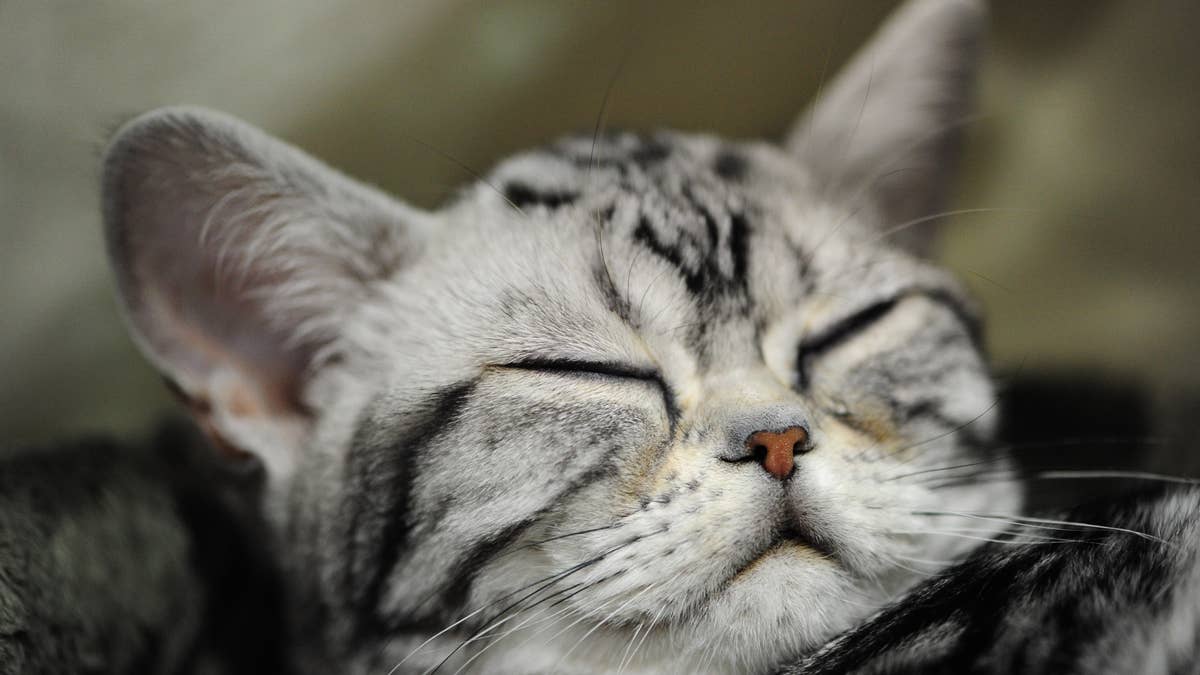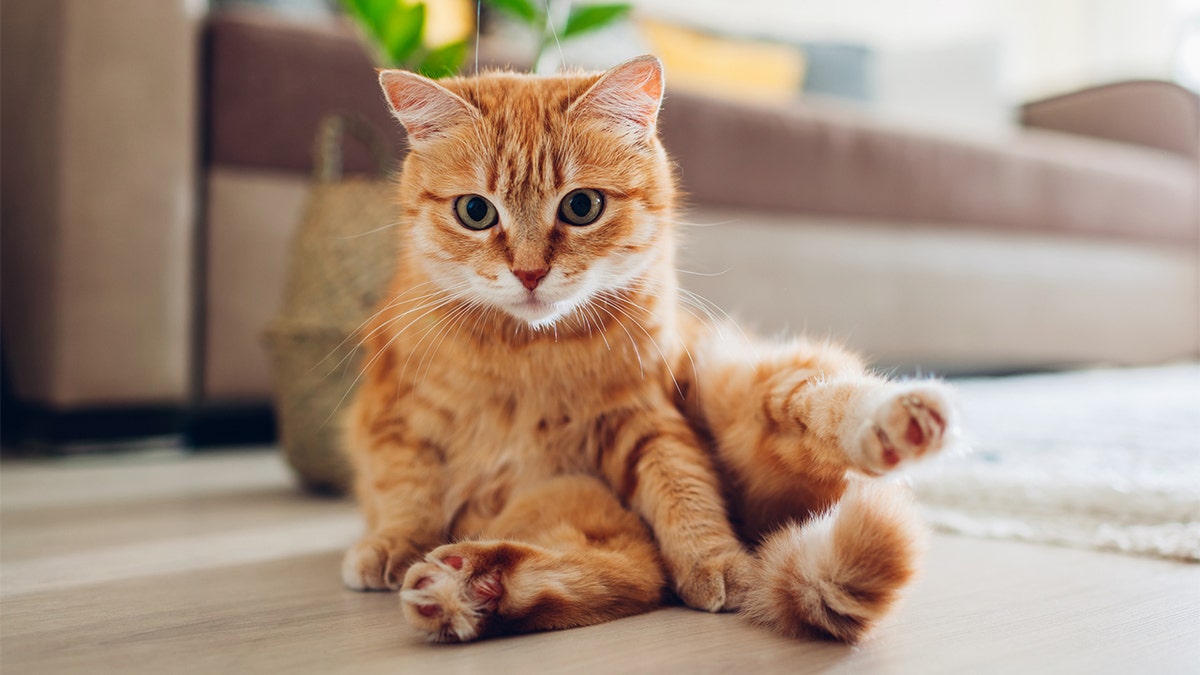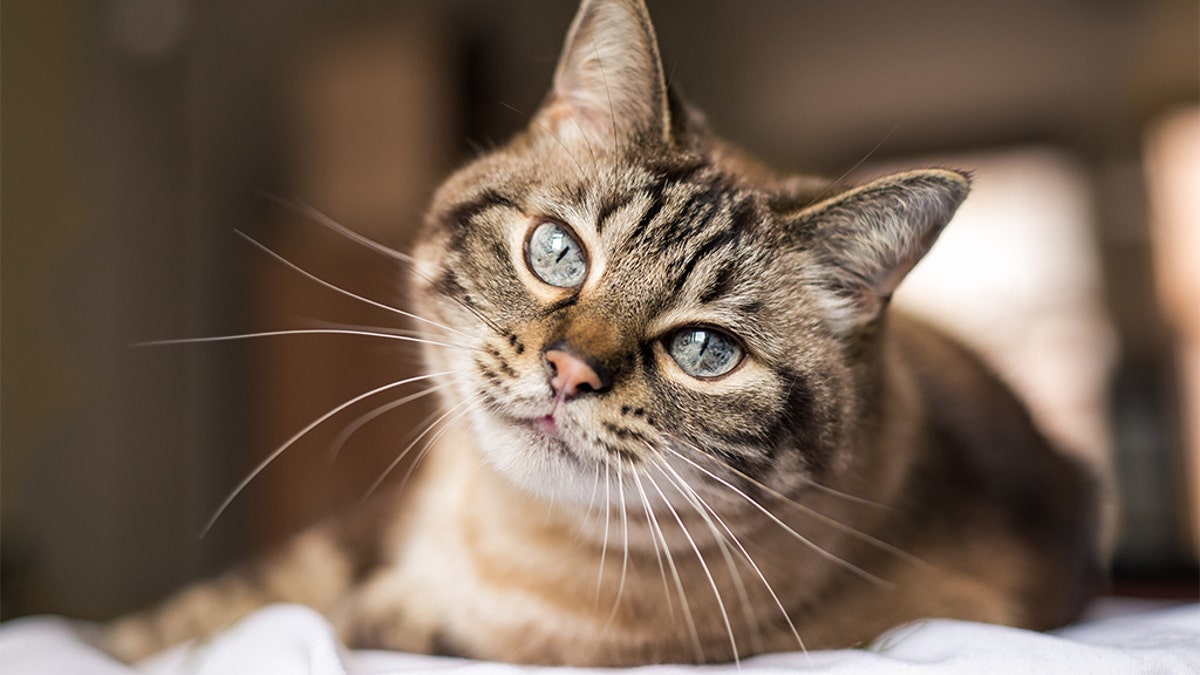Here’s an easy way to improve your fur-riendship with your cat.
A team of psychologists has found a way to communicate positive emotions with cats using eye movement.
The researchers from the Portsmouth and Sussex universities in the U.K. found that narrowing eyes at a cat in a movement they described as a “slow blink,” followed by a prolonged eye narrowing or closure is like smiling for cats. The results of their two experiments with slow blinking at cats were published in the journal Scientific Reports this week.
Their study found that pet cats were more likely to slow blink back at their owners if the owners slow blinked at them first, and they were even more likely to approach a researcher they’d just met if the person slow blinked before offering an open hand than if the researcher kept a neutral facial expression.

For cats, a "slow blink" is like a smile, researchers said. (Alex Milan Tracy/Sipa USA) (Alex Milan Tracy/Sipa USA via AP Images)
ONCE-ABANDONED CAT WITH DIFFERENT COLORED EYES, EXTRA TOES BECOMES INSTAGRAM FAMOUS
This was the first time slow blinking has been studied in cat-human communication, according to Karen McComb, a professor at the University of Sussex school of psychology and one of the study’s authors.
“As someone who has both studied animal behavior and is a cat owner, it’s great to be able to show that cats and humans can communicate in this way,” McComb said in a press release. “It’s something that many cat owners had already suspected, so it’s exciting to have found evidence for it.”

Cat owners can also try to replicate the experiment at home. (iStock)
CLICK HERE TO GET THE FOX NEWS APP
Animal behavior scientist Tasmin Humphrey, the study’s lead author, said a greater understanding of cat-human interaction can help improve public understanding of cats and cats’ welfare. She also noted that cats have not been studied as much as some other human-friendly species like dogs.
“In terms of why cats behave this way, it could be argued that cats developed the slow blink behaviors because humans perceived slow blinking as positive,” Humphrey said in a press release. “Cats may have learned that humans reward them for responding to slow blinking. It is also possible that slow blinking in cats began as a way to interrupt an unbroken stare, which is potentially threatening in social interaction.”

Cats respond to slow blinks from their owners and strangers. (iStock) (iStock)
CLICK HERE TO SIGN UP FOR OUR LIFESTYLE NEWSLETTER
Cat owners can also try to replicate the experiment at home, according to McComb.
“It’s a great way of enhancing the bond you have with cats,” McComb said. “Try narrowing your eyes at them as you would in a relaxed smile, followed by closing your eyes for a couple of seconds. You’ll find they respond in the same way themselves and you can start a sort of conversation.”






















